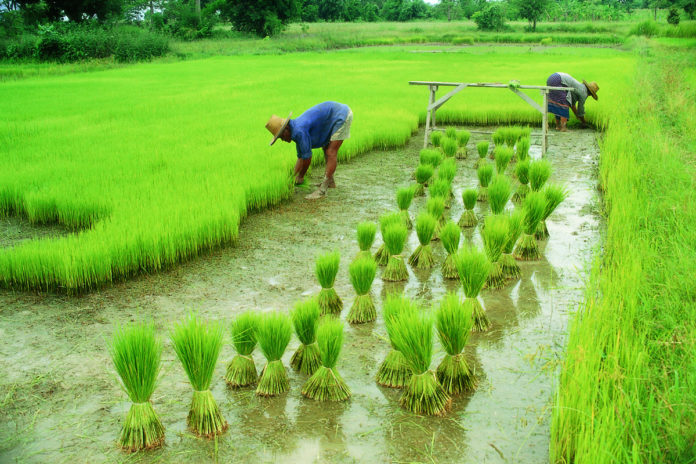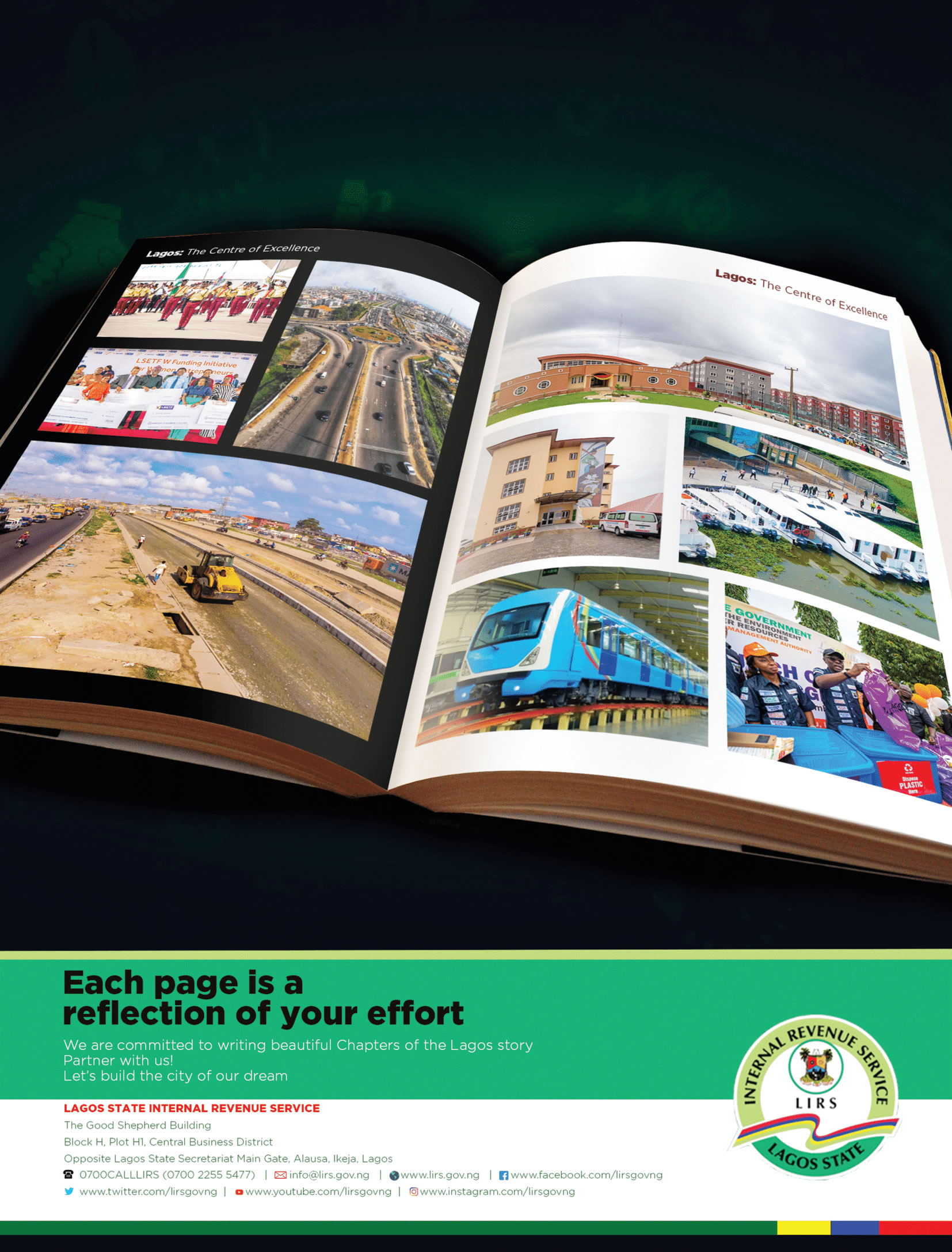The rice debate in Nigeria is an intense and fierce one by different players who don’t understand the dynamics and only tend to put out emotional arguments not grounded on facts and logic but aim to score cheap political points. They try to play to the fact that self-sufficiency is a walk in the park and merely requires sloganeering and mantra speak. I beg to disagree, we need to think through the issues and be pragmatic in our approach.
Nigeria depending on the data being presented and the one you believe consumes between 5.5 -7.0million metric tons of rice per annum. For this article, I will use the figure and data provided by the highest echelons of government, which for now is 7 million tons. About 2.7 million tons of that is produced locally but if we add the recent 2 million tons of paddy (which translates to about 1.2 million tons of packaged rice- as about 22-23% is husk and 7-8% is bran while balance 10% is rejects & bran/brokens) the government tells us has been generated by the farmers in Kebbi, Niger, Nasarawa, Kano, Jigawa, Ebonyi that will be 3.9 million tons meaning we technically have a gap of 3 million tons, which can only be met by legitimate imports or smuggling.
Whenever the tariff differential between the Nigeria rice tariff and the tariff in Benin Republic and Togo is very wide, the resultant effect is significant and massive levels of illegal cross border trade flows (smuggling). As per the industry sources illegal smuggling of rice from Benin, Niger and Cameroon have easily been to the level of between 1,000,000mt to 2,000,000mt per annum over the past 6-7 years.
The shipments of parboiled rice from India and Thailand into Lome, Cotonou, and Douala ports is a very fair estimate of smuggled rice into Nigeria as none of these countries have internal consumption of parboiled rice. All the imports of parboiled rice into these countries finally find their way into Nigeria. Smuggled Rice is around about 2 million tons now and that needs to be curbed.
 Almost all the rice that one can see in markets across the length and breadth of the country is imported rice. There is very little of locally produced or milled rice in the market whether it is in big markets like Lagos, Abuja, Kano or Onitsha or even the smaller markets like Makurdi, Ilorin, and Kaduna. To be fair to the current government and particularly the Central Bank of Nigeria, its intervention program tagged Anchor Borrowers Scheme that seeks to encourage local production by granting single digit loans to out growers is yielding results albeit in trickles but it is a good start and must be commended. Conversely, paddy prices in Nigeria have hovered around 60,000 naira per metric ton from 2015 and has climbed to 160,000 in 2016-17 which is significantly higher than the prices in India and Thailand. This makes it challenging for Rice millers in Nigeria to be competitive.
Almost all the rice that one can see in markets across the length and breadth of the country is imported rice. There is very little of locally produced or milled rice in the market whether it is in big markets like Lagos, Abuja, Kano or Onitsha or even the smaller markets like Makurdi, Ilorin, and Kaduna. To be fair to the current government and particularly the Central Bank of Nigeria, its intervention program tagged Anchor Borrowers Scheme that seeks to encourage local production by granting single digit loans to out growers is yielding results albeit in trickles but it is a good start and must be commended. Conversely, paddy prices in Nigeria have hovered around 60,000 naira per metric ton from 2015 and has climbed to 160,000 in 2016-17 which is significantly higher than the prices in India and Thailand. This makes it challenging for Rice millers in Nigeria to be competitive.
The number of jobs and improved livelihoods that can be created in rural areas by investment and improvement in paddy production is in several multiples coupled with rice milling and distribution as part of the entire value chain.
Private sector investment in rice farming and cultivation is essential in ensuring a workable and enduring linkage between farm to factory/farmgate in the rice value chain. A Rice mill simplistically speaking is a piece of hardware, which can be set up within 18-24 months. Rice milling technology is fairly standardized and readily available. But for a Rice mill to function effectively, it needs steady and reliable supply of good quality paddy at competitive prices, which is not available today. The biggest bottleneck in the rice value chain is rice farming and not rice milling. It requires long gestation, bigger quantum of investments and a complexity of factors to manage.
The way forward in order to assess the demand and supply situation on the one hand is for policy makers to work with right set of data and one that is accurate and complete. Ignoring the supply of imported parboiled rice into and from neighbouring countries leads to false assumptions and consequently wrong policy formulation. On the other hand, the current tariff/levies of 60 plus 10 70% for imports is not sustainable for trading and as such cannot sustain imports into the country as cost of smuggled rice through land borders is far cheaper, moreover the Central Bank has placed a technical ban by not allowing Form-M and by extension allotting foreign exchange but that is just an infinitesimal part.
Another part of the Policy thrust should be to encourage investors/corporates in the Rice business in Nigeria to invest in Rice farming. The policy should aim at getting the investor to have a Commercial Rice farming to cover at least 50% of their milling capacity and to rely on Farmer Out grower programs for the rest of the paddy. This would kick-start the much needed investment and corporate participation in Rice farming. Every investor in rice milling should be mandated to incorporate a rice farming component to assure a minimum 50% supply against stated capacity. If this is not done there is a real risk of investors who have only done the relatively small/minor investment in rice milling alone to compete unfairly against the investors who have invested in both rice milling and rice farming. They can do so by being able to bid up the paddy procurement price because they do not have the high capital investments and associated costs, from the catchment area of companies that have invested in integrated farming and milling projects.
In conclusion, we must commend the efforts of the current government who have through their AGRICULTURAL CHANGE AGENDA through the Minister of Agriculture and the Central Bank Of Nigeria ably led by the Governor Godwin Emefiele intervened via the Anchor Borrowers programme, which supports over 200 thousand farmers across different value chains and lastly not forgetting the Kebbi State governor Senator Atiku Bagudu who is the chief proponent of grow local for Rice and wheat.
Ade Adefeko is Vice President Corporate & Government Relations and also in charge of External Communication and Stakeholder Management at OLAM NIGERIA, the largest Agribusiness and food company in Nigeria and a subsidiary of OLAM international of Singapore the parent company with a presence in 70 countries. Ade is a polyglot, an avid writer, and the current Chairman of the Nigerian Association of Chambers of Commerce, Industry, Mines and Agriculture Export Action Group (NACCIMA) NEXAG.




























